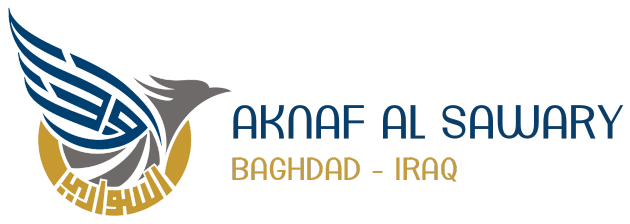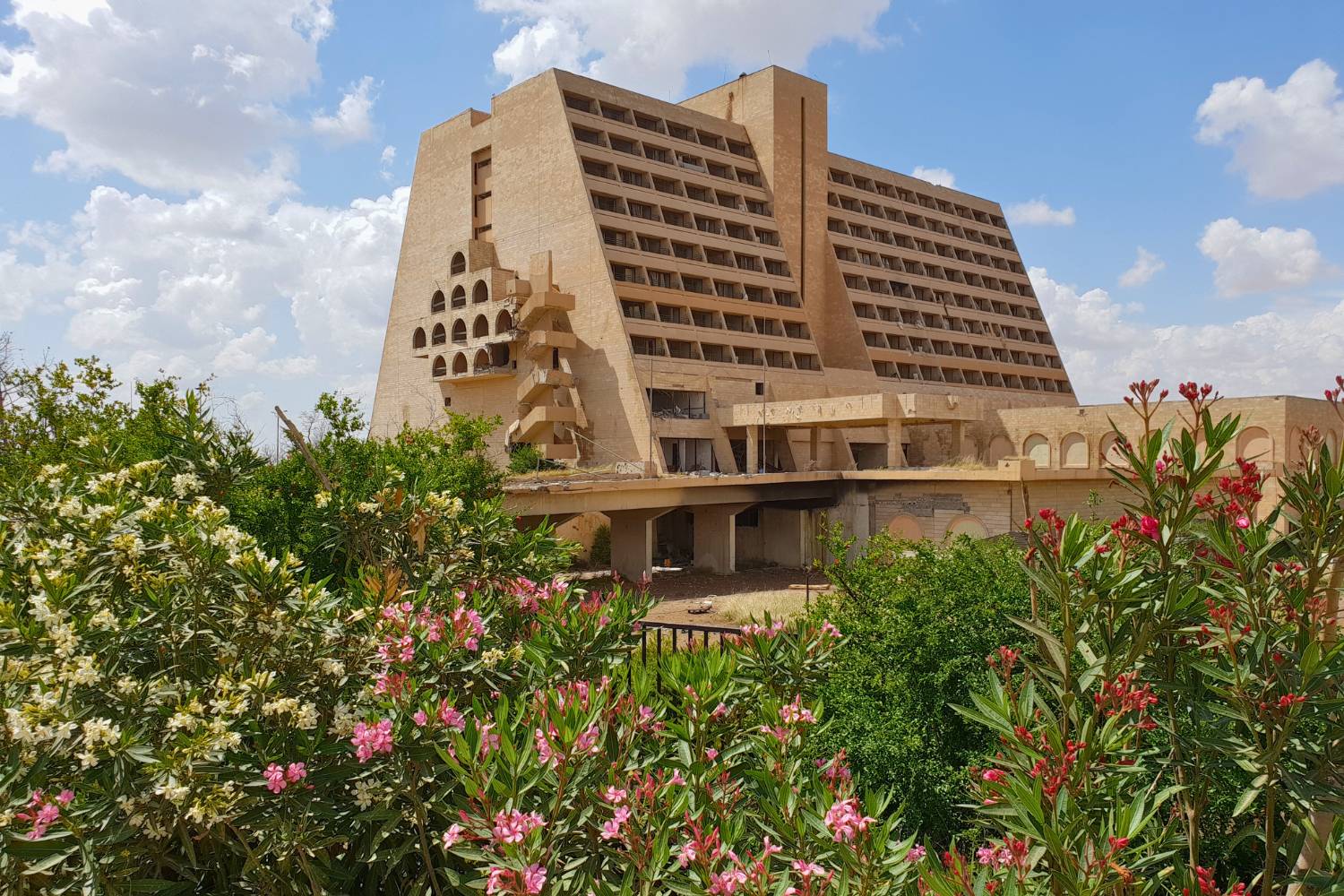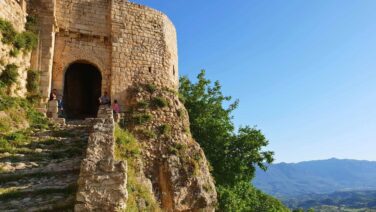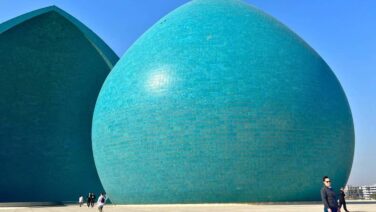Mosul, located in northern Iraq along the banks of the Tigris River, is a city of immense historical significance and cultural richness. Known for its diverse heritage, vibrant markets, and stunning architectural landmarks, Mosul is a city that tells the story of centuries-old civilizations and modern resilience. For travelers seeking to explore the depth and breadth of Iraq’s northern treasures, Mosul offers an unparalleled experience.
Ancient Mosul:
- Foundation: The area around Mosul has been inhabited since ancient times, with the city itself being a key trade center for millennia. It is located near the ruins of Nineveh, the capital of the Assyrian Empire, one of the most powerful empires of the ancient world.
- Assyrian Empire: During the Assyrian period, the region around Mosul was a bustling center of commerce and culture, with Nineveh at its heart. The remnants of this ancient civilization can still be explored today.
Medieval Mosul:
- Islamic Golden Age: Under Arab Muslim rule, Mosul flourished as a center of learning and culture. It became known for its grand mosques, libraries, and bustling markets.
- Ottoman Empire: In the 16th century, Mosul became part of the Ottoman Empire and continued to thrive as a key economic hub. The city’s rich cultural tapestry was further enriched during this period.
Modern Mosul:
- 20th and 21st Centuries: Mosul has faced significant challenges, including conflicts and occupation. Despite this, the city has shown remarkable resilience and continues to rebuild and restore its cultural heritage. Today, Mosul is a symbol of endurance and revival.
Must-Visit Attractions
Nineveh:
- Ancient Ruins: Just outside Mosul, the ruins of Nineveh offer a fascinating glimpse into the ancient Assyrian Empire. Explore the remnants of grand palaces, temples, and the famous city walls that once stood as a testament to Assyrian might.
Al-Nuri Mosque:
- Historical Significance: The Al-Nuri Mosque, known for its leaning minaret, is one of Mosul’s most iconic landmarks. Although the original structure was destroyed, efforts are underway to rebuild this important symbol of the city’s heritage.
Mosul Museum:
- Cultural Treasures: The Mosul Museum houses a rich collection of artifacts from the region’s ancient history to its modern era. Despite suffering damage, the museum remains a crucial repository of Iraq’s cultural heritage.
Mosul’s Old City:
- Architectural Marvels: Wander through the narrow streets of Mosul’s Old City, where you can see beautiful examples of traditional Iraqi architecture. The Al-Saa’a Church and various Ottoman-era houses showcase the city’s diverse historical influences.
Cultural Experiences
Iraqi Cuisine:
- Local Flavors: Mosul’s culinary scene is a delightful mix of traditional Iraqi dishes and regional specialties. Don’t miss trying masgouf, a traditional grilled fish dish, along with kubba mosuliya (rice-stuffed meatballs) and dolma (stuffed vegetables).
Markets and Souks:
- Shopping Delight: Mosul’s markets are bustling centers of commerce where you can find everything from spices and textiles to handcrafted goods and jewelry. The Al-Madina Souk is one of the most famous, offering a vibrant shopping experience.
Music and Arts:
- Cultural Festivals: Mosul hosts several cultural festivals throughout the year, celebrating its rich heritage and vibrant community. These festivals often feature traditional music, dance, and arts, providing visitors with an immersive cultural experience.
Natural Attractions
Mosul Dam:
- Engineering Marvel: Located on the Tigris River, the Mosul Dam is one of the largest dams in the Middle East. It provides stunning views of the river and surrounding landscapes, making it a popular spot for picnics and photography.
Hammam al-Alil:
- Thermal Springs: Located south of Mosul, Hammam al-Alil is known for its natural hot springs. It’s a perfect place to relax and enjoy the therapeutic properties of the mineral-rich waters.
Practical Information
Best Time to Visit:
- Weather Considerations: The best time to visit Mosul is during the spring (March to May) and autumn (September to November) when the weather is mild and pleasant. Summers can be extremely hot, while winters are relatively mild with occasional rainfall.
Getting There:
- Accessibility: Mosul is accessible by road and rail from other parts of Iraq. The nearest major airport is Erbil International Airport, which is approximately 85 kilometers away and offers connections to various international destinations.
Accommodation:
- Where to Stay: Mosul offers a range of accommodation options, from modest guesthouses to more comfortable hotels. While the city’s infrastructure is still recovering, there are several places that provide a comfortable stay for visitors.
Mosul attractions
Mosul, located in northern Iraq, is a city rich in history and culture. Despite recent challenges, it remains a significant destination with several notable attractions. Here’s a guide to some key sites in and around the city:
Key Attractions in Mosul:
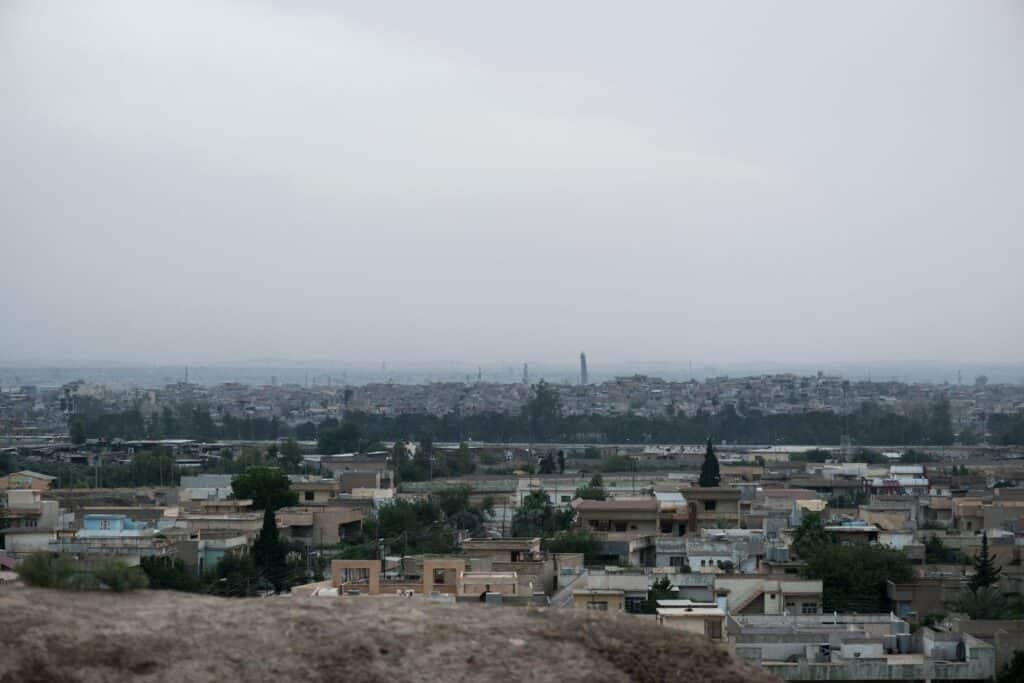
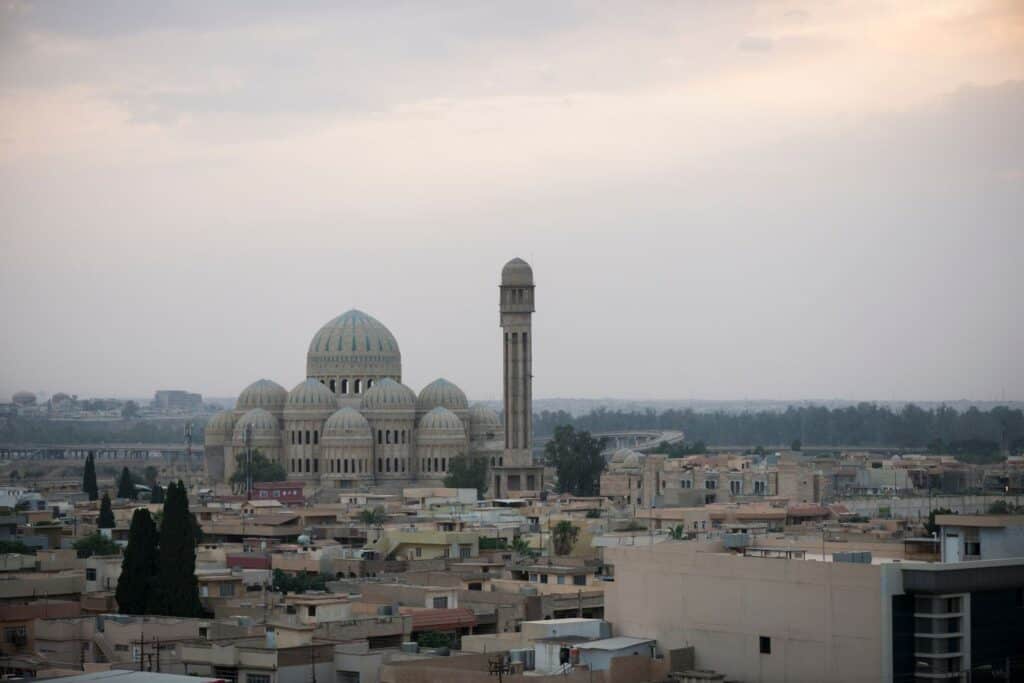
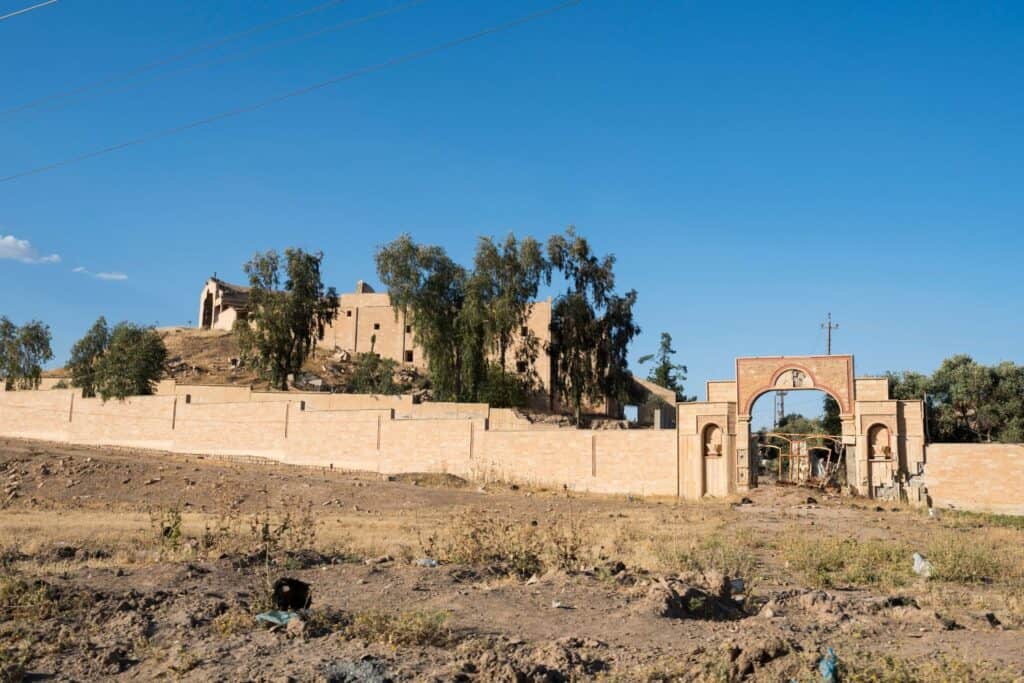
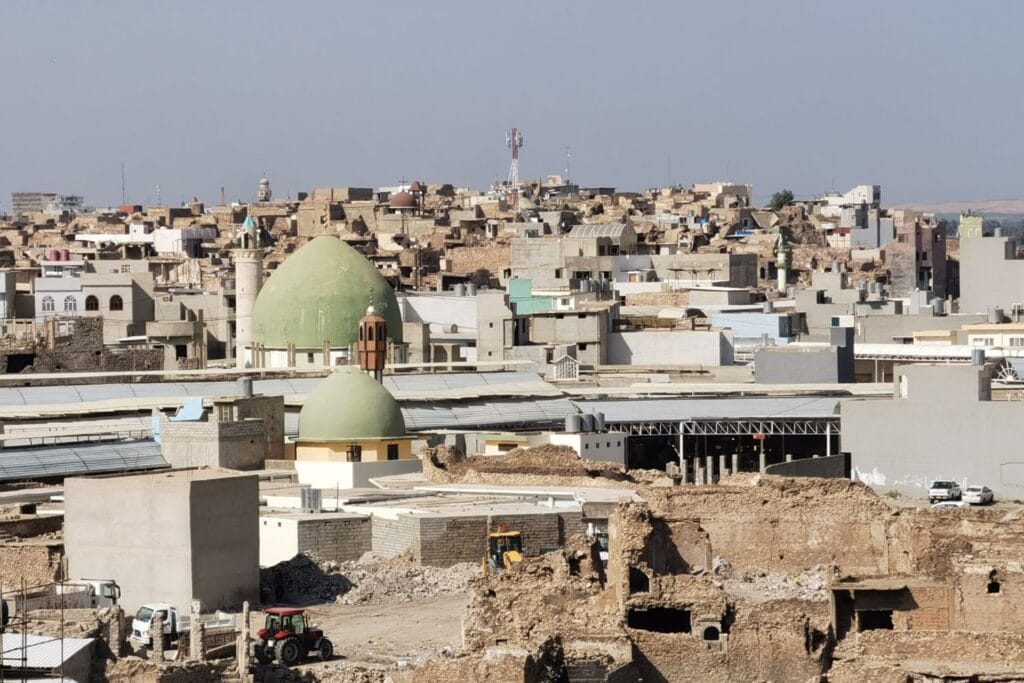
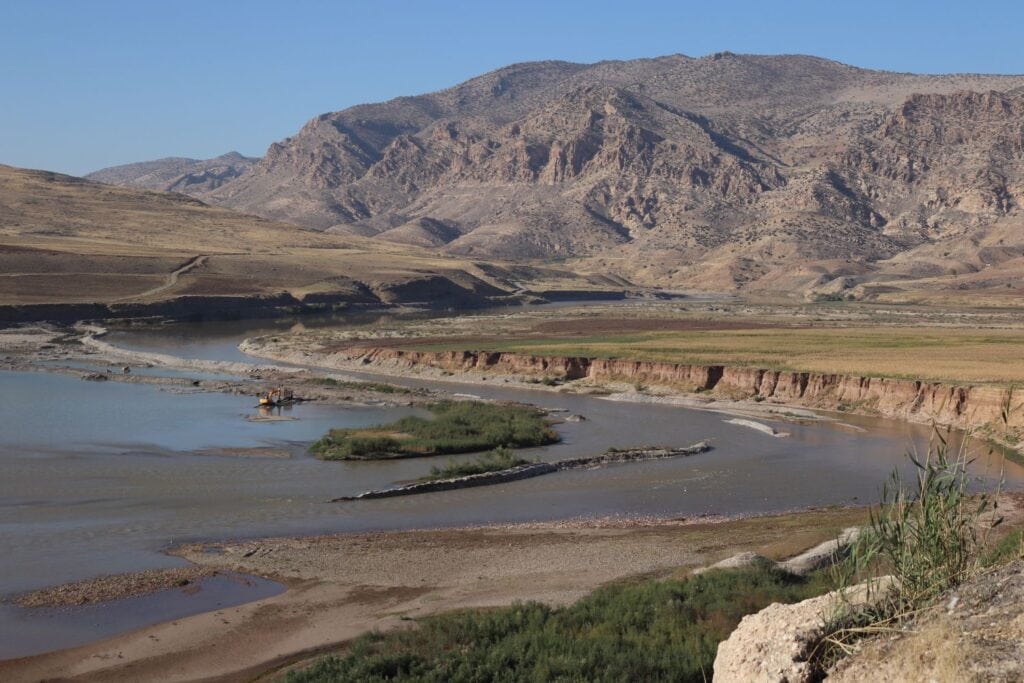
Historical Attractions:
- Nineveh Ruins:
- Ashur (Assur) Temple: Remains of the ancient Assyrian temple dedicated to the gods.
- City Walls and Gates: The historic fortifications that once protected the ancient city of Nineveh.
- Great Mosque of al-Nuri:
- Leaning Minaret: Famous for its distinctive leaning structure, a symbol of Mosul’s heritage.
- Mosul Museum:
- Artifacts: Includes relics from Nineveh and other Mesopotamian sites, showcasing the region’s ancient history.
Religious and Cultural Sites:
- St. George’s Monastery:
- Christian Heritage: An ancient monastery near Alqosh, important for understanding the Christian history of the region.
- Old City of Mosul (Al-Mosul al-Qadimah):
- Traditional Markets (Souqs): Explore the bustling markets that reflect the city’s vibrant cultural life.
Archaeological Sites:
- Tal Afar:
- Historical Structures: Sites in this town provide additional context to the region’s diverse history.
Natural and Scenic Attractions:
- Tigris River:
- Scenic Views: Offers opportunities for river cruises and views of the city from the water.
- Surrounding Landscape:
- Views: Enjoy the natural beauty of the landscape around Mosul, including the nearby hills and rural areas.
Travel Tips:
- Security and Safety: Always check travel advisories and local conditions. Travel with a trusted guide if possible.
- Cultural Sensitivity: Dress modestly and respect local traditions.
- Health Precautions: Ensure vaccinations are up-to-date and have comprehensive travel insurance.
- Language and Connectivity: Arabic is the primary language; local SIM cards can help with communication.
By exploring these attractions, you’ll gain a comprehensive understanding of the city’s rich heritage, from its ancient history to its vibrant present.
Cultural Sensitivity:
- Respect Traditions: Dress modestly and be respectful of local customs and religious practices.
- Historical Context: Many sites have been affected by recent conflicts, so be mindful of ongoing reconstruction efforts.
Health Precautions:
- Vaccinations: Before traveling to Iraq, including Mosul, make sure you are up-to-date with essential vaccinations. Key vaccinations to consider include Hepatitis A and B, Typhoid, Tetanus, Diphtheria, Pertussis (Tdap), Polio, Rabies (if contact with animals is possible), Influenza, and COVID-19. Consult your healthcare provider or a travel clinic well in advance to ensure you receive all necessary vaccines and health advice for a safe trip.
- Travel Insurance: Obtain comprehensive travel insurance that covers medical emergencies and other unexpected situations.
Communication:
- Language: Arabic is the primary language. Learning a few basic phrases or having a translator can be helpful.
- Connectivity: Local SIM cards for mobile data and calls are easily available in Mosul. Major providers such as Asiacell, Zain, and Korek offer prepaid plans. You can buy them at airports, shops, and mobile stores. Bring your passport for registration to stay connected throughout your visit.
For more detailed information and up-to-date travel advice, consult resources such as the UK Foreign Office or the US Department of State.
Conclusion
Mosul, with its rich tapestry of history and cultural significance, offers a profound travel experience despite recent challenges. From the ancient ruins of Nineveh to the iconic yet resilient Great Mosque of al-Nuri, the city reflects its storied past and ongoing recovery. Visitors can explore traditional markets in the Old City, discover Christian heritage at St. George’s Monastery, and view significant artifacts at the Mosul Museum. As you plan your visit, stay informed about local conditions, respect cultural and historical sensitivities, and ensure you have the necessary health and safety precautions in place. By embracing Mosul’s heritage and contributing to its revival, you’ll gain a deeper appreciation of its enduring legacy and vibrant spirit.
Mosul is a city that captivates visitors with its rich history, vibrant culture, and enduring spirit. Whether you’re a history enthusiast, a cultural explorer, or simply looking to experience the dynamic life of northern Iraq, Mosul has something to offer. Plan your visit with Aknaf Al Sawary and uncover the timeless treasures and hidden gems of this remarkable city.
Embark on an unforgettable journey through Mosul, and witness the blend of ancient traditions and modern developments that make this city truly unique. Discover the heart of northern Iraq with Aknaf Al Sawary – your trusted travel partner.
